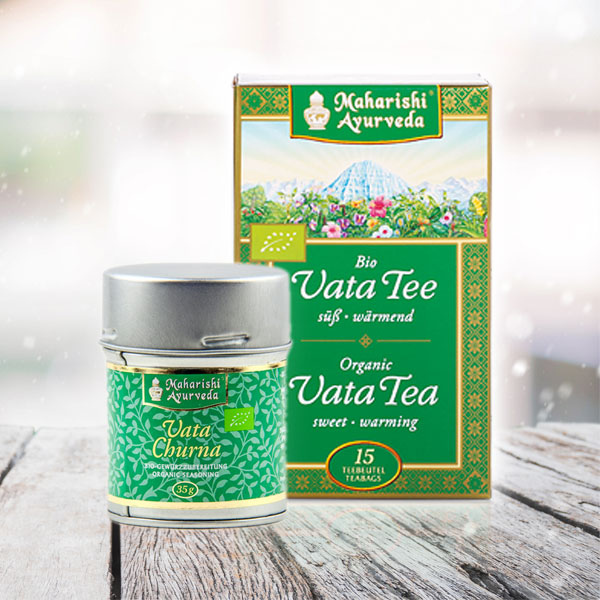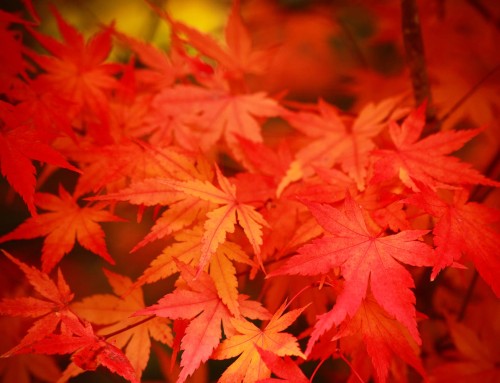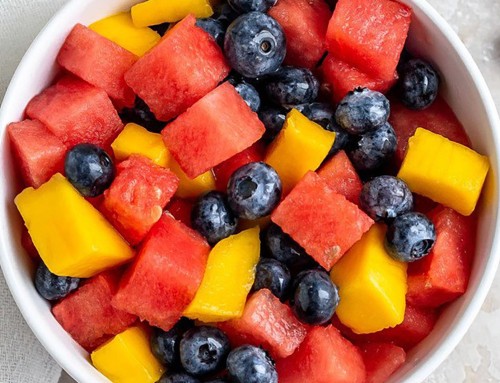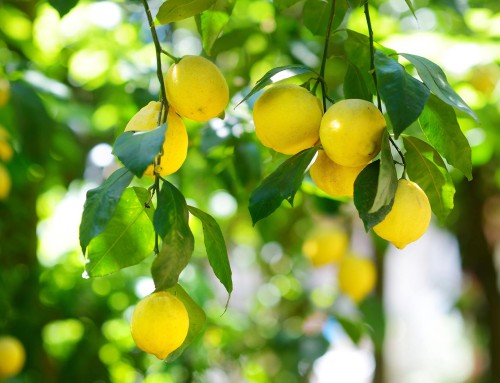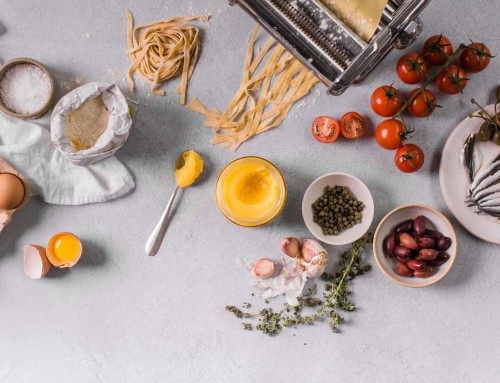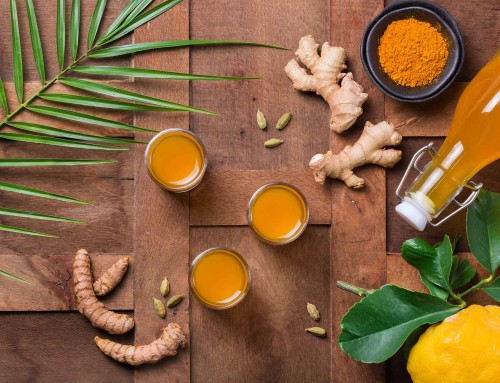
Dietary Pointers for the Depths of Winter
When it’s really cold, rainy and windy outside one can feel chilled to the bone. Keeping warm and maintaining energy and immunity and ability to stay focused can be challenging in the depths of winter and a winter cold can be harder to shift and also more debilitating. So here are some tips to help you thrive during the depths of winter!
Before I consider pointers to ensure your food choice provide maximum nourishment to support your wellbeing at this time of the year, I want to draw your attention to the Throat Soothe Syrup (MA3357) that I personally find invaluable to have around during winter:
Throat Soothe Syrup (MA3357) is helpful at this time due to the refreshing combination of herbs that help to soothe the throat, keep your airways open while also supporting lung health and resistance to infection and allergy.
Throat Soothe Syrup is a precise, time-tested herbal formula prepared in the traditional Ayurvedic way to aid bioavailability and easy assimilation.
The careful combination of herbs create a synergistic effect that is greater than using isolated individual herbs. Throat Soothe Syrup herbs include 3 key herbals – Holy basil (leaf), Chinese pistachio (gall), and Malabar nut tree (root).
- Holy basil, also known as Tulsi is balancing to Vata, Pitta and Kapha. It provides a strengthening effect while being beneficial for respiratory health, lungs and the bronchial system.
Tulsi is pungent, bitter, light and dry. It has a heating and sharp quality which is traditionally used to help liquefy phlegm or mucous while also supporting the body’s healthy response to allergens. Tulsi has been used in many cultures around the world for thousands of years and its status is reflected in its Sanskrit name which means “the incomparable”. It can also be taken daily as a Rasayana or respiratory tonic. - Chinese pistachio (gall) and Malabar nut tree (also known as Vasa or Vasaka) are traditionally used to strengthen the mucous membrane.

Now to the dietary pointers
One saying attributed to Hippocrates a Greek physician could have been said by an Ayurvedic Doctor from that time also… “In food excellent medicine can be found, in food bad medicine can be found; good and bad are relative.”
The word that got my attention here is ‘relative’ which is an adjective and means “considered in relation or in proportion to something else”. In this case, the something else is the quantity and time of the year. At one time of the year, a food choice may be very health-promoting while the same food at another time of the year can be unhealthy for you.
Have you noticed a mug of soup made from chunky vegetables is more attractive in the depths of winter than a drink of cold raw vegetable juice? Whereas in the warmth of a summer heatwave a glass of vegetable juice can be delightful and a salad bowl with your favourite toppings and sauces delectable.

Have you wondered why?
The answer to this question provides key insights into how to eat during the depths of winter.
Ayurveda explains that all food (being what we eat or drink) are made up of the 5 building blocks of nature – space, air, fire, water and earth. Ayurveda further explains that each of the doshas is dominant in two of these five qualities and that all of creation including our food mirror these 5 qualities too. You may see where I am going with this.
So Vata dosha which is strongest during Winter is dominant in the space and air elements. So if we take foods that are dominant in the elements of space and air like lettuce, raw vegetables and light, cold or dry foods, then the Vata qualities increase and will most likely cause an imbalance of Vata dosha within us. This is because at this time of the year the outside environment is more cold, windy and changeable too.
There is a principle in Ayurveda that says ‘like increases like and dissimilar or opposite decreases”. In this is the answer of how to guide your food choices during winter.
Vata is increased or aggravated by light, dry and cold foods and tastes that are pungent or spicy, bitter (like lettuce) and astringent like pomegranate, persimmons or bean and lentils that are cooked without oil or ghee.
So now it will make sense when I suggest you favour heavy, oily and hot foods such as hearty stews and soups, slow-cooked casseroles, fresh-baked breads and fruit pies.
You will notice that your energy levels are steadier and you feel more happy and calm when eating Vata settling foods. See our Dosha Guide for Vata diet – and recommended foods.

- Use the warming spices of ginger, cinnamon, fennel and cardamom to help keep your digestion strong and happy.
- Favour warm, moist, soothing foods such as warm milk, cream, butter, warm soups and long-cooked stews, hot cereals and fresh-baked bread as they soothe best during the depths of winter.
- If feeling nervous, worried or anxious instead of a sugar-rich drink or chocolate bar have a bowl of hot cereal such as oatmeal, or a cup of creamed vegetable soup as you will feel much better!
- Drink plenty of warm drinks including Vata Tea.
- A cooked cereal that is warm, milky and sweet is best for breakfast. Ideally, eat within an hour of waking.
- Be sure to have regular mealtimes and stop for lunch at midday. A warm lunch that is freshly cooked is best. Where you can make lunch your largest meal of the day. This is the best time of the day to take cheese, eggs and meats if non-vegetarian. Favour the vegetables that are in season with a focus on root vegetables as they are particularly grounding at this time of the year. Be sure to have a balanced meal of grains such as rice or other carbohydrates along with a source of protein such as lentils or beans and 1-3 servings of cooked vegetables. Salads or raw foods are best left alone in the depths of winter as they are strongly Vata aggravating. Having said that, it is also not good to overcook vegetables either. So go for a happy medium where the vegetables are cooked but not overdone.
- For an energy boost, late afternoon have a Vata Tea with a date slice, muffin or biscuit. Take 5 minutes to relax as you have your tea and it will help raise your energy.
- Have your evening meal by 6 – 6.30 pm and leave 3 hours before going to bed for complete digestion to occur. Consider enjoying a hot soup instead of salad, have warm bread and butter and enjoy a warm dessert such as apple sponge, date pudding or apple pie. Or you may even like to have a hot breakfast cereal again!
- Prior bed a warm milk with cardamom, ginger, nutmeg and a little raw sugar is tasty and helpful.

Vata Aromatic Seasoning
An instant way to settle Vata is to use Vata Aromatic Seasoning. This balance of tastes and food qualities has been formulated to be particularly balancing to Vata dosha. Saute the spice mix with a little Ghee or Olive oil and add to savoury food while it is cooking. Or sprinkle over your food as it is cooking, or sprinkle over savoury food at mealtimes. It is tasty and beautifully settling. Try it and see!

Lastly as digestion can be changeable at this time of the year it is often a good idea to take a digestive aid.

If Vata is strong in you by nature or you have a current Vata imbalance then Digest Plus (MA154) helps to balance gas, supports liver and pancreatic function and is particularly suitable after a heavy meal.
If Pitta is strong in you by nature then Digest Medium Powder (MA685) would be most helpful during winter. If you are liable to experience over-acidity in the stomach then Herbal Aci-Balance (MA575) will help maintain balance.
If Kapha is strong in your by nature or imbalance then Digest Plus (MA154) after meals will be very helpful as it helps to regulate Agni the digestive fire which can be low or sluggish for Kapha people during winter or when Kapha imbalance is present.

Wishing you the bliss of a warm, healthy, happy and well-nourished winter this year and always.

Linda Sinden, Maharishi AyurVeda Consultant
Linda Sinden has been a practising Maharishi Ayurveda Consultant since 1990 and is a regular contributor to our health articles. She has a practice in Auckland, New Zealand and also provides phone or Skype sessions for those who need assistance, but don’t have a consultant in their vicinity.
Email: lindasinden@orbislife.co.nz
Mobile: +64 212237525
Skype: Linda.Sinden
DISCLAIMER: The information in this document is presented for the sole purpose of imparting education on Maharishi AyurVeda and neither the information nor the products are intended to diagnose, treat, mitigate, cure or prevent any disease. If you have a medical condition or are pregnant or lactating, please consult a health professional and it is recommended that you speak with your physician before making significant changes to your diet or routine.


